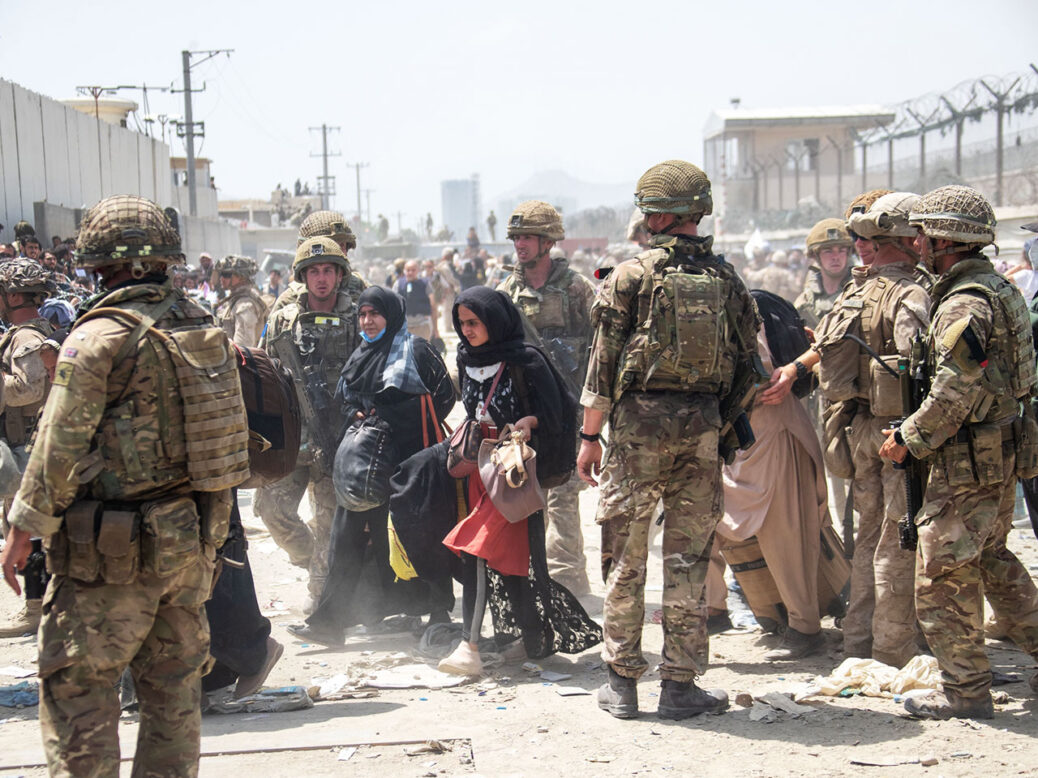
On the great Afghan leak and cover up, where to start? The answer – the only decent answer – is with the principal victims, the volunteer soldiers, translators, support staff and their families who helped British forces during the so-called war on terror. They did so in the hope of forging a better country, but were then betrayed by a butter-fingered official (still employed) and left in great danger.
That their state enemy, the Taliban, did not use the leak of more than 18,714 names – and not just names but telephone numbers, personal details, family members’ details – to institute a general slaughter of the up to 100,000 people thought to be affected in total, is fortunate. Although, come to think of it, how would we know if any of our former allies were killed or tortured because of the leak? All of this is still shrouded in secrecy and yet another government injunction. But this week I spoke to one former Afghan interpreter who told me about the recent public murder of the brother of a former pro-British soldier.
Even as we lean on the possibility of an effective and assertive state to bring us greater economic growth and equality, we are left slack-jawed and embarrassed at the continuing incompetence of the actual British state as it exists today. From our military blunders to our shrivelled aid programme, British state failure has often been, as it were, foreigner-facing. In this case, at least the government tried to remedy things by bringing some 24,000 Afghans affected by the data breach to this country, either already or soon. The total cost, over time, could be up to £7bn.
At this point, however, the British state starts to remember the British voter, and panics. It is entirely believable that the original ordinary, non-super injunction, was a reasonable short-term precaution while the numbers of those in danger were established and swift measures were taken to get them out of harm’s way. But what followed was, let’s be clear, a cover-up. The true story was hidden from Parliament, journalists and the public – quite deliberately and for years.
Why? Again, some of the hesitation must have stemmed from concerns that releasing the facts would put more people in even greater danger. It was only once the Rimmer inquiry concluded that this wasn’t the case that John Healey, the Defence Secretary, acted. One of the few politicians left in public life who commands respect across the Commons, he sounded convincing about the difficulty of that decision. But much of this, particularly before last year’s election, was about backside-covering.
MPs are well aware that increased migration is not popular, and that Afghans, despite all the heroism of some of them, are not a particularly popular group. In the first ten months of last year, foreign nationals were twice as likely to be arrested for crimes, with Afghans among the top five nationalities for arrest rates. They were also among the most highly represented groups convicted of sexual offences. The Tory cabinet knew that launching a new scheme for Afghans, especially one carrying significant cost, would be politically toxic in an election year; particularly if it stemmed from a government blunder. The new scheme, therefore, was kept secret. This was disgraceful.
Ministers hate ruling things out, because they don’t know what the future holds. But this week, the Armed Forces Minister, Luke Pollard, came close to telling me he would never support another super-injunction of this kind. Quite right. Keir Starmer, now on his second career, should also resolve to steer clear of secret courts.
And there is a far bigger lesson. Our most recent military interventions have brought only grief. The Falklands War was no model for anything. The Iraq War removed a bloodthirsty dictator, but it also unleashed civil war and devastation, followed by waves of migration and the rise of Isis – a genuinely Islamo-fascist regime which, by the end of 2015, controlled territory home to some 12 million people. In all these ways, intervention failed.
The war in Afghanistan also failed. It failed to dislodge the Taliban. What did not kill them made them stronger. It failed the women and girls of Afghanistan who dreamed of a decent education. It failed to make the Middle East safer. And it humiliated both the United States and Britain at a time when our enemies, Russia among them, were watching closely. That failure likely contributed to the subsequent Russian invasion of Ukraine.
So as Labour ministers confront this latest inherited state humiliation, can they please resolve to stop foreign wars – unless they are absolutely certain there is no alternative and that it is, existentially, in our national interest? Because our modern experience, driven home again this week, is clear: warfare fails.
[See also: The Tories are responsible for the Afghan resettlement fiasco]





